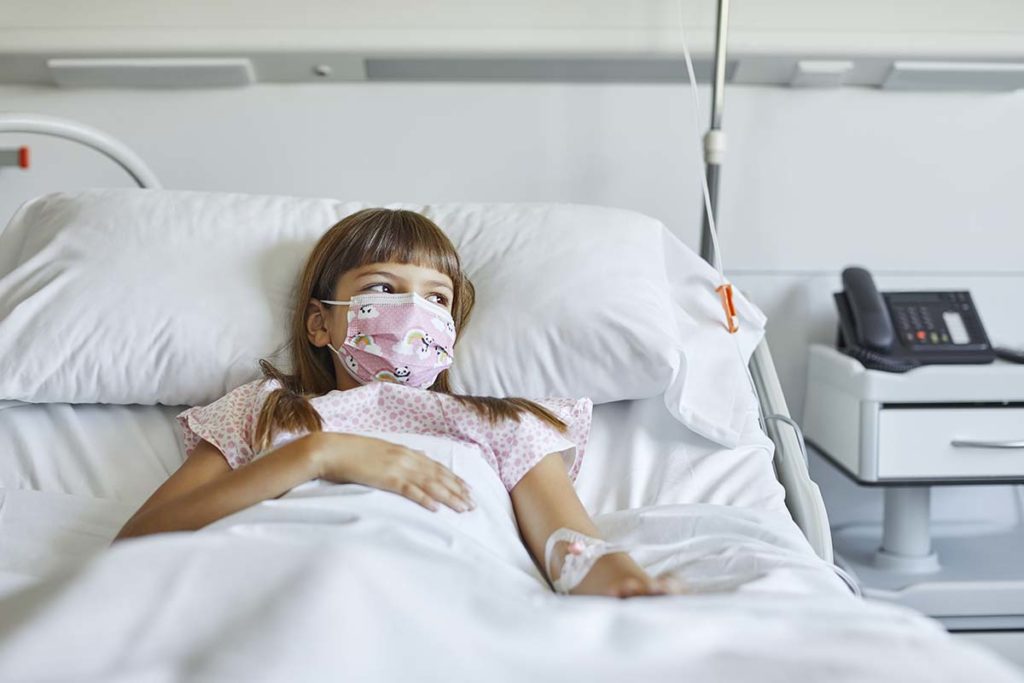As if years of parenting through a pandemic wasn’t enough, now there are news reports of another illness affecting kids: hepatitis. But is this really something parents should worry about? Pediatric liver expert Frank DiPaola, MD, and pediatric infectious disease specialist Debbie-Ann Shirley, MD, MPH, help set the record straight.
What is Hepatitis?
Hepatitis is inflammation of the liver. There are many causes, including viruses you may have heard of: hepatitis A, B, and C. (We have vaccines for hepatitis A and B for kids before age 2.) Other causes include some medications, other viruses, and autoimmune liver disease.
Sometimes, the cause of hepatitis is unknown. “Of kids with severe hepatitis who require transplant, around 30% of those are unexplained,” says DiPaola.
What Do We Know About the Rising Number of Kids Getting Hepatitis?
Nine kids in Alabama developed severe cases of unexplained hepatitis last fall. This prompted doctors there to alert health authorities. Not only was this surge in cases above average, these kids also had more severe illness. All needed hospitalization and two needed a liver transplant.
This prompted the Centers for Disease Control and Prevention to work with local health departments to look more closely into these cases. Here’s the most current update as of May 18, 2022:
- There have been 180 cases of unexplained hepatitis in kids across 36 states in the U.S.
- Kids younger than 10 make up a majority of cases.
- In 90% of cases, kids needed hospitalization.
- About 9% needed a liver transplant.
- Six of these children have died.
Researchers are still investigating what is causing the rise in kids getting hepatitis. But they have found one possible link. Their lab tests showed that more than half of kids with hepatitis also had adenovirus infection.
What is Adenovirus?
“When we talk about adenovirus, we’re talking about a large family of viruses that are very common. Each type will cause different symptoms, such as pink eye, sore throat, and fever,” says Shirley.
Further lab tests in some children have identified adenovirus 41. This type of adenovirus often causes gastrointestinal illness. “With adenovirus 41, kids are more likely to have diarrhea and vomiting,” says Shirley. “Unfortunately, there is no good cure for adenovirus. But a majority of healthy kids will have mild cases and recover quickly.”
DiPaola assures parents there’s no need to panic if your child gets adenovirus. “At this point, it’s impossible to tell what number of kids with adenovirus will get severe hepatitis,” he says. “But, based on our experience with viruses like this, it’s safe to say that a majority of kids will not.”
Can Adenoviruses Be Prevented?
As with any contagious illness, you and your kids can help limit the spread of adenoviruses. Wash your hands and avoid others who may be ill.
What Are the Signs of Severe Hepatitis?
It’s very unlikely that your child will get severe unexplained hepatitis. However, it can’t hurt to know the signs. They include:
- Yellowing of the eyes and skin
- Itching
- Pale white or grey stools
If your child has any of these symptoms, it’s important to see your pediatrician or family doctor. “The quicker a child is diagnosed and treated for hepatitis, the more likely the liver can recover,” says DiPaola.
Has Your Child’s Cold Taken a Turn for the Worse?
Make an appointment today with a UVA Health Children’s pediatrician.
What if My Child has Hepatitis?
If your child is diagnosed with hepatitis, doctors will do tests to find the cause. Because of the CDC investigation, this now includes testing for adenovirus. Doctors will test a blood, stool, tissue, or respiratory sample.
“Most kids will not develop severe hepatitis, but if a child is symptomatic, it’s important for them to see a doctor with experience,” says DiPaola. “At UVA Health, we can do a rapid and expansive evaluation and treat kids as soon as possible. For kids who aren’t improving and who need a liver transplant, we can offer that lifesaving treatment.”
The bottom line for parents, says DiPaola, is to be well-informed. “Stay calm. Ask questions. We’re here to support you,” he says.
